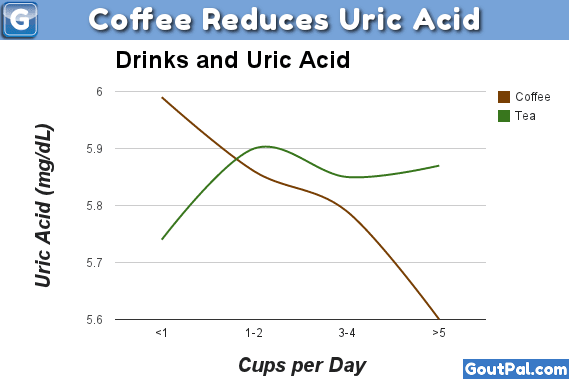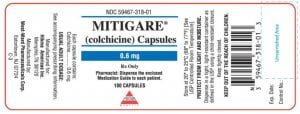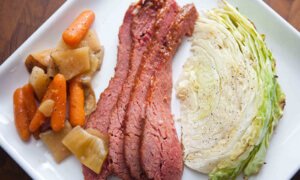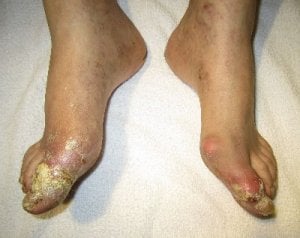This is my layman’s review of a report investigating the coffee-uric acid relationship.
Like similar reports investigating coffee and gout, this is a statistical investigation looking at coffee consumption compared to uric acid levels.
After the review, I summarize what the link between coffee and uric acid means for gout sufferers.
Coffee and Uric Acid Purpose
The purpose of this page is to help GoutPal Dieters understand how coffee might improve uric acid levels. So this is for people who are working with their doctor to improve their eating patterns. Because understanding the role of coffee helps patient and physician to work together on a personal gout recovery program. Which is the fundamental Purpose of GoutPal.com.
However, if you have not agreed healthy eating patterns for gout with your doctor, you should consider one of the other GoutPal plans. Or consider the topics related to uric acid and coffee.
Coffee and Uric Acid Study
This review is based on a 1999 study of coffee and uric acid[1]. Subsequently, I have added notes from related research that cite this study.
The introduction describes uric acid. It is routinely tested in Japan as part of most blood tests. Not only is it linked to gout, but high uric acid is also linked to heart disease, diabetes, and high blood pressure.
The most popular non-alcoholic drinks in Japan are green tea and coffee, both of which are high in caffeine.
Coffee and Uric Acid Study: Subjects and Methods
The study subjects are all Japanese males. From the available study records, many were excluded because subjects were being treated for gout or other health conditions. This left 2240 men aged between 49 and 59.
The subjects had uric acid tests and analysis of food and drink consumption. All the collected information was grouped into different categories. For example, coffee and green tea were categorized less than one, one to two, three to four, and 5 or more cups per day.
Coffee and Uric Acid Study: Results
There was a wide range of uric acid levels, with an average of 5.8mg/dL. High uric acid, defined as 7 or over, was recorded in 17.5% of subjects. Statistical analysis revealed links between uric acid and age, smoking status, glucose tolerance, and Body Mass Index (BMI).
A small decrease in uric acid was associated with increasing coffee consumption. No clear correlation was found between uric acid and green tea consumption.

Coffee and Uric Acid Study: Discussion
Though coffee was associated with lower uric acid, the comparison with green tea excludes caffeine as a reason. The nature of the study makes it impossible to judge if reduced uric acid is from coffee inhibiting production, like allopurinol, or increasing excretion, like probenecid. The authors suggest theobromine, and this has also been suggested in Theobromine and Gout
The authors note that the reduction in uric acid through coffee consumption, whilst significant in statistical terms, is only 5%, which might not be medically important.
Coffee and Uric Acid Study: Next Steps
Though the investigation reveals a connection, it cannot explain the nature of the link between coffee and uric acid. Therefore, the authors call for further specific research. So you should always ask your doctor if there is additional research that is more relevant to your specific medical history.
Also, consider subsequent research. Including this selection of related studies:
- Coffee & Uric Acid Review
- The 1999 study was one of nine studies about coffee and uric acid reviewed in 2016[2]. This meta-analysis concluded:
coffee intake of 1 cup/day or more was significantly associated with reduction of the risk of gout […] moderate coffee intake might be advocated for primary prevention of hyperuricemia and gout in both genders.
- Coffee Consumption & Uric Acid
- A 2020 study of coffee consumption prompts a warning about high coffee intake[3]. This research concludes:
Serum uric acid level increased with increasing coffee consumption. After adjusting for all confounding factors, serum uric acid level was higher in the groups that consumed coffee daily, at more than four teaspoons, than in the groups that did not consume coffee.
- Tea & Uric Acid
- Coffee is only mentioned in passing in a 2021 study[4]. However, as many sufferers mention tea when discussing coffee, it is useful to consider this conclusion:
In conclusion, results from these three large and well-established population-based studies demonstrated a significant connection between tea consumption and SUA levels at baseline, but these provided no support for the longitudinal association in the follow-up of 4–6?years. Misclassification bias could have influenced the longitudinal association and the direction of the bias would be more likely towards the null in our study. Additional well-designed cohort studies with more precise measurement of tea consumption (e.g. cup capacity and tea concentration) and longer follow-up durations are needed to confirm our findings.
On balance, there are currently no definite guidelines for coffee consumption by gout sufferers. But you can discuss this research with your doctor. Because the only way to be certain is to arrange uric acid blood tests before and after different patterns of your coffee consumption.
Leave Coffee and Uric Acid to browse Gout Diet Foods To Eat guidelines. Or continue with your GoutPal Plan for Gout Dieters.
Coffee and Uric Acid Related Topics
Please remember: to find more related pages that are relevant to you, use the search box near the top of every page.
Common Terms: caffeine, coffee
Other posts that include these terms:
- Gout Diet Foods To Eat
- Gout Diet Foods To Eat: Theobromine and Gout
- Coffee And Gout – Great Gouty Arthritis Drinks
- Best Home Remedies For Gout: Water
- Coffee And Gout
Coffee and Uric Acid References
- Kiyohara, Chikako, S. Kono, S. Honjo, I. Todoroki, Y. Sakurai, M. Nishiwaki, H. Hamada et al. “Inverse association between coffee drinking and serum uric acid concentrations in middle-aged Japanese males.” British Journal of Nutrition 82, no. 2 (1999): 125-130.
- Park, Kyu Yong, Hyun Jung Kim, Hyeong Sik Ahn, Sun Hee Kim, Eun Ji Park, Shin-Young Yim, and Jae-Bum Jun. “Effects of coffee consumption on serum uric acid: systematic review and meta-analysis.” In Seminars in arthritis and rheumatism, vol. 45, no. 5, pp. 580-586. WB Saunders, 2016.
- Seok, Ji Han, Hyun Jin Kim, and Rae Ho Chung. “Associations of Coffee Consumption and Serum Uric Acid Levels in Korean Adults: Korea National Health and Nutrition Examination Survey, 2016.” Korean Journal of Family Practice 10, no. 3 (2020): 192-199.
- Chen, Dan-Dan, Xing-Xuan Dong, Xue-Jiao Yang, Hong-Peng Sun, Gang Liang, Xing Chen, and Chen-Wei Pan. “Tea consumption and serum uric acid levels among older adults in three large-scale population-based studies in China.” BMC geriatrics 21, no. 1 (2021): 1-8.
Please give your feedback
Did this page help you? If yes, please consider a small donation. Your donations help keep GoutPal's gout support services free for everyone.
If not, please tell me how I can improve it to help you more.
- YouTube
- The gout forums.









